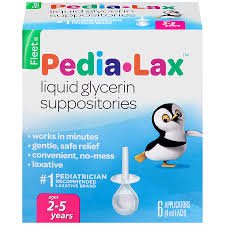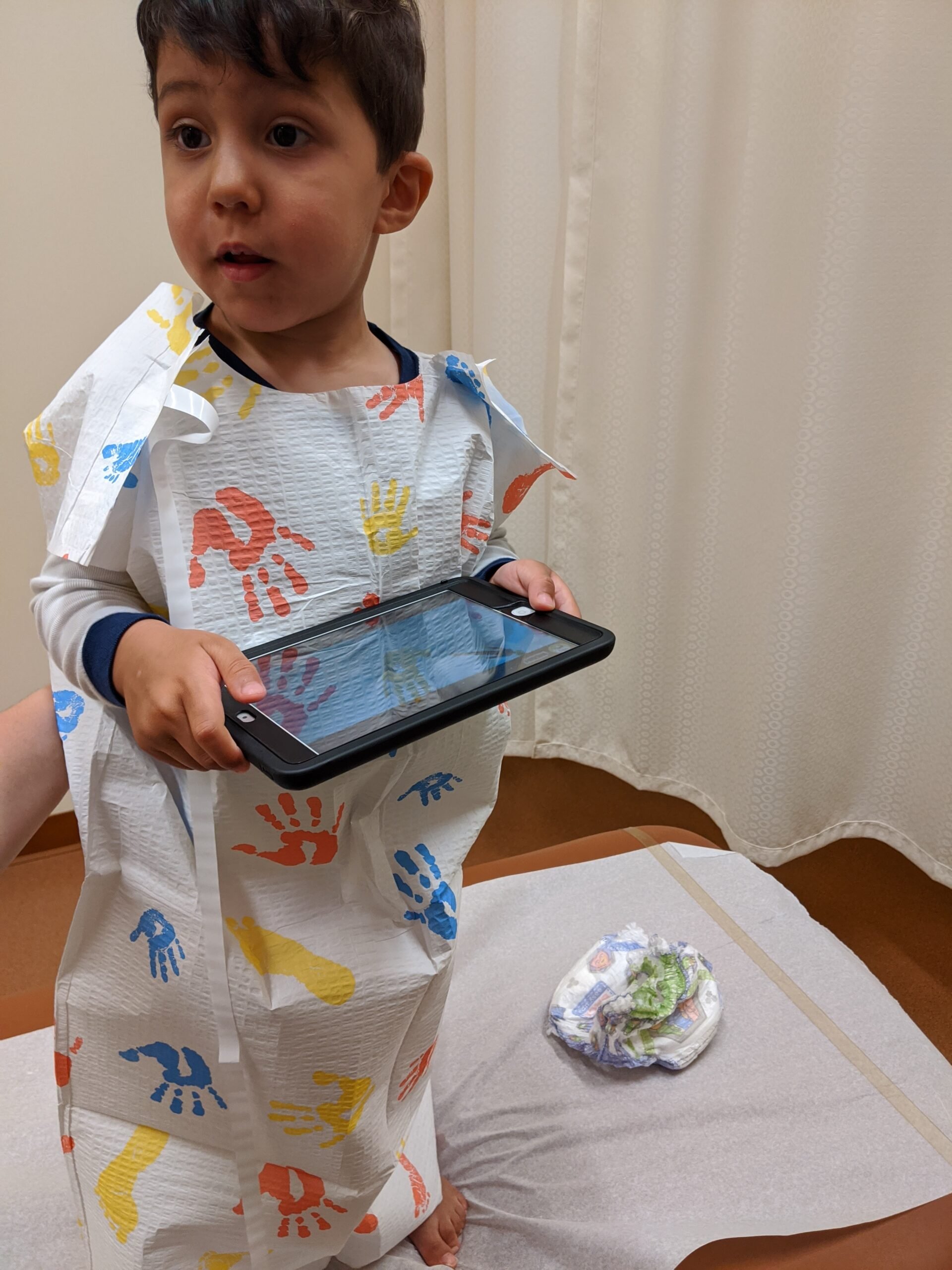Originally posted October 19, 2020
If you, your child, or any other person has a medical concern, you should consult with your health care provider or seek other professional medical treatment. Never disregard professional medical advice or delay in seeking it because of something that have read on this blog or in any linked materials.
Potty Training looks different for different kids. It varies from child to child, boy to girl, family to family. We had a frustrating, yet relatively simple time with out older son. There was a long weekend of nakedness to kickstart peeing on the potty, followed by a couple months of poop accidents before he really got it down. But as far as I can tell from talking to friends and family – it was all pretty ‘normal’.
Fast forward three years and add my younger son to the line of young boys waiting for this incredible rite of passage known as Potty Training. And well, because my little guy gets all the weird things (future posts to come), he is the lucky one to teach us about Rectal Prolapse. If you’re reading this, you’re either a friend, family member, curious passerby, or a concerned parent looking for something that might help give you comfort or guide you through your immediate future. Whatever your purpose, just know, I still have minor PTSD from the whole ordeal – but my son? He’s fine. He likely has no recollection, experienced no pain, and is now three years and seven months old – and fully potty trained.
There is a piece of me that feels weird sharing his story – but if even one parent finds this blog because they’re experiencing something similar – then it was worth it. I sure wished I could have found this story back in June 🙂
Backstory
We’d gone through some constipation issues when my son was 1.5 – 2.5yo. He’d had minor fissures as a baby- but nothing that required medical attention. He was always a great eater and drinker, ate his blueberries and fruit, drank his water, and I wasn’t really aware that things weren’t moving smoothly for him. Then one day, he was visibly uncomfortable trying to poop. He was walking, but not quite talking which is the only way I can categorize his age. We’d give him hugs to comfort him and he’d always eventually get it out. Once he got impacted and I had to manually help him. After that, we always kept some Pedia-Lax on hand. It was awful watch him and despite our efforts to keep him hydrated – we experienced quite a few of these awful poops.
Potty Training Challenges
Some time had passed and it seemed as if things were naturally working themselves out. Enter COVID-19 in March of 2020 just after Phoenix turned 3 and our family went from working and being at school or daycare – to all being home together. Every. Single. Day.
I don’t recall the constipation really being an issue in those mid-March days, but I was also working communications for a public school district in the start of a global pandemic – and to be honest, it is all a bit of a blur. What I remember though, was agreeing to work on potty training Phoenix now that we were home and could be consistent. For us the progression went as follows:
peeing on the little potty
peeing on the big potty (sitting)
peeing on the big potty (standing) NOTE: This is what big brother does, so this is what Phoenix wanted to do. I highly, strongly, unequivocally recommend potty training children DO NOT try to pee standing up at the toilet. They will like it and you will have to help them every time, and if you don’t help them, you must enjoy cleaning little boy pee from every surface in your bathroom.
peeing on the bit potty (sitting)
trying to poop on little potty
trying to poop on big potty
This last step is where our trouble began. I would do like any encouraging, enthusiastic mom would do and celebrate trying to poop. Saying things like, “You can do this! Let it go! Mommy will be so happy if you can make your poop in the toilet!” We’d sing funny poop songs, watch music videos, and read books like Everyone Poops, My Big Boy Potty, Once Upon a Potty, P is for Potty. We’d say, “Oooooooooh doody” and I would encourage him to push.
It always took a while and some effort – but eventually he would poop in the toilet. There was a fair amount of resistance, sometimes tears, some fear, but he was always proud and relieved after. I should have known from looking at his poop that he was still constipated. There were a couple of times when a drop of blood would follow his poop. I should have sought medical advice at this point – but he was eating, drinking, sleeping, advancing in every way – and he was mostly potty trained, so we kept at it.
One day, he went from resisting while pooping to pushing even when he didn’t need to. Pushing every time he peed and saying, “If I poop, you’ll be happy”. I knew then that I needed to dial it back – but I couldn’t have imagined what would come. I explained to him that I am always happy when he tries to go, but only when he needs to, only when the poop was coming. I was so proud he was finally coming around and not being scared to poop – my encouragement was working. Only it wasn’t working in his favor.
Life-Changing Moment
This past Father’s Day, June 21, 2020, we began an interesting journey and although we’re mostly out of it – it’s still difficult for me to remember. I was doing my normal enthusiastic thing trying to get Phoenix to poop. He was doing his thing trying to make me proud. When he was finished, I went to wipe him. I looked at his behind and thought some poop was stuck. I looked closer and wiped gently, only to realize that what I was looking at wasn’t poop. It was literally the lining of his rectum, protruding through the anus and outside his body. I said, “Oh no, some poop is stuck.” I told him to sit for a minute and frantically got Dave to come see what I discovered.
Dave called the Doctor while I sat with Phoenix – who by the way, was complete unfazed. Still smiling and hanging out on the toilet. We put Phoenix in a pull-up and had him sit on the couch with Desi while we waited for an appointment time. I was on my way with him 10 minutes later, headed to a Pediatric Urgent Care Center that was 25 minutes away. He was fine the whole time. We checked in, put on his little gown, and wouldn’t you know – when I took a look – it had fixed itself? Just popped back in where it was supposed to be.
The Road to Recovery
Anyway, we were told to give him Miralax twice a day and to increase water intake, as well as to eat lots of P-fruits (pears, peaches, plums, etc). We also increased other fruit like berries, watermelon, and applesauce, as well as, reduced dairy/bread. I thought if we did these things, we’d be in the clear. Well for a week or so after it first happened, it continued to happen daily. It would generally go back in on it’s own, or I would have to guide it back. Phoenix would tell me when it was stuck and when it was fixed, but never expressed any feelings of discomfort or pain.
We also stopped having Phoenix sit on the main/adult toilet seat where his butt would sit lower than his knees – inadvertently causing more strain. Instead we had him sit on a kid potty seat so he would stay at a 90° angle. We also started discouraging pushing – unless he really needed to and if poop was coming.
For the end of June and July, he took a capful of Miralax mixed with 4oz of apple juice and water in the morning and at night with dinner. We called it his special juice. We made an appointment with a Pediatric Gastroenterologist. We ran through the above experience from constipation to potty training antics, to Miralax dosage, and more. We were told we were doing all the right things and that although surgery could be a solution if this didn’t resolve on it’s own – they usually do.
Because Rectal Prolapse is a symptom of Cystic Fibrosis, we also had to make an appointment for a Sweat Test. That was extremely interesting.
We had two follow-ups with the Pediatric Gastroenterologist. In August, we dropped to one dose of Miralax a day. In September, we cut his full morning dose down to 3/4 of a capful, and now midway through October, we are down to a 1/4 capful. I will be so glad when he doesn’t need to take it anymore – but I appreciate the reason for the drawn out process of tapering off and am grateful that his issue was solved without the need for surgery.
For more official information including symptoms, causes, and care, please visit this “Rectal Prolapse in Children” article from Boston Children’s Hospital.



